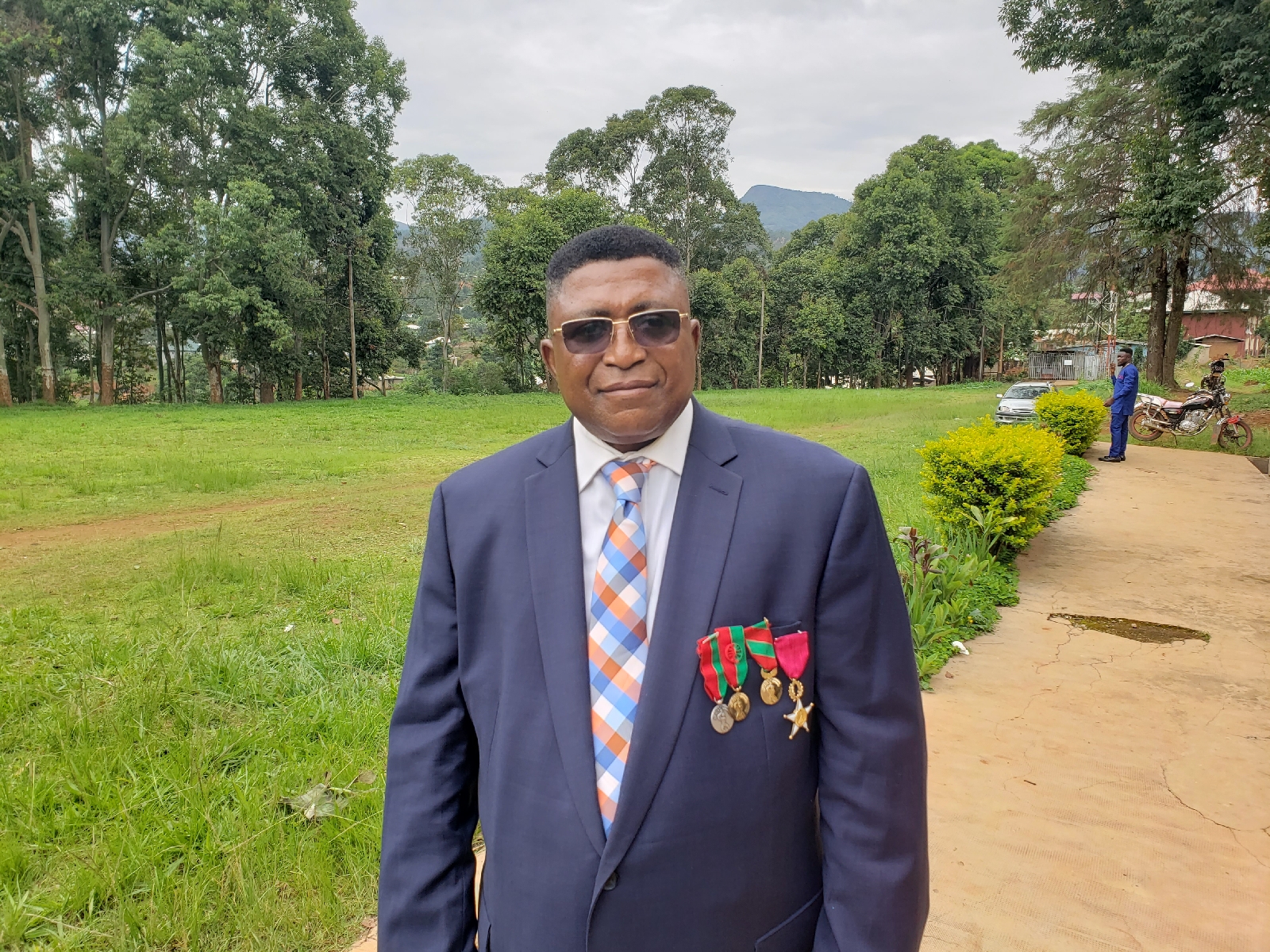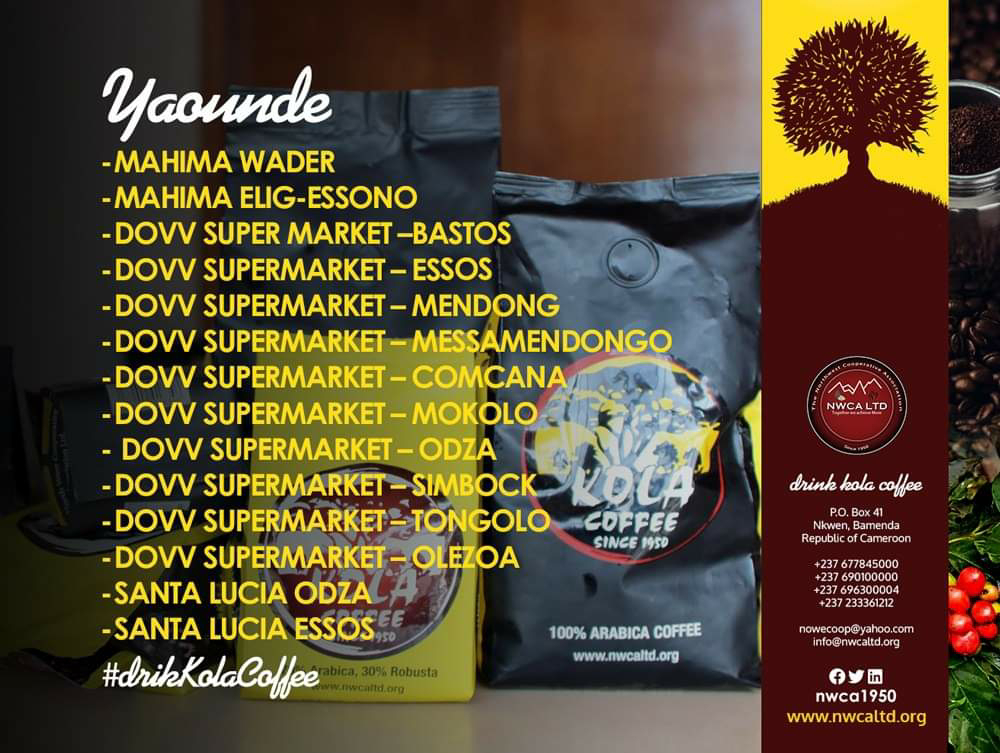By Hilltopvoices
Created in 1996 and recognized as an association in 1997, Strategic Humanitarian Services (SHUMAS) Cameroon became a full fletch Non-Governmental Organization in Cameroon following decree number 000156/A/MINAT/SG/DAP/SDLP/SONG/BA of the Ministry of Territorial Administration and Decentralization at the time. In 2013, SHUMAS gained special consultative status with the United Nations Economic and Social Council (ECOSOC) and became a member of the NGO Committee on Social development with the UN on the 4th of February 2016.
With the vision “For a Just One World and Sustainable Development”, SHUMAS focuses on Humanitarian Response and Integrated Sustainable Development with the aim to improve lives, safe lives, reduce poverty and empower the most vulnerable people to realize the fullest of their potentials without limiting posterity from meeting theirs.
For over 25 years, SHUMAS has successfully carried out activities in all 10 Regions of Cameroon in the areas of Agriculture, Education, Health, Women Empowerment, Environment, Social Welfare, Water and Sanitation and Volunteering. In the North West, South West, West, littoral, Center and Far North Regions of Cameroon, SHUMAS has been working to alleviate the suffering of crisis affected populations in the areas of; Food Security/Livelihoods, Nutrition, Education in Emergency, Health, Shelter/NFI, Protection and WASH.
Decoration of SHUMAS Director and others by North West Regional Governor for the services rendered to the state
Numbers that speak
SHUMAS Cameroon has achieved the following though not limited to:
Constructed and equipped more than 950 classrooms in poor urban and rural schools with dilapidated and insufficient infrastructure.
Provided scholarship to 10500 vulnerable children who without scholarship will drop out of school
Provided informal education to 513 persons living with disabilities by constructing and equipping workshops and engaging skilled persons to train free of charge persons living with disabilities in life skills adaptable to their disability, and after training, he provides them with startup materials to setup their own workshops
Improved hygiene and sanitation in schools by providing toilets, hand washing facilities, and establishing WASH clubs.
Improved access to basic health services for the underprivileged, vulnerable persons living in poor urban and rural communities through;
Sponsoring the training of 86 State Registered nurses, from remote communities with limited qualified personnel to work in their community health centers after training
Constructed and equipped over 150 health facilities in remote rural areas and poor urban communities.
Searched 7412 children who drop out from receiving routine vaccines and zero dose cases in districts with low vaccination coverage and led to vaccination 4988 of them in the North West and West Region
Provided potable water to 180 urban poor and rural communities through bore holes or water by gravity depending on feasibility of the system in the community
Trained and installed water management committees in the 180 communities
Protected 60 water catchment by working with communities to plant water shed trees and fencing of water catchments
82 women groups with an average membership of 30 women have been given micro credits at very low interest rates to enable them carryout income generating activities.
Build the productive capacity of 8012 women on income generating activities and supported them to set up their businesses
Established 4 renewable energies components (Hydroelectricity, Wind Turbines, Biogas digester, Photovoltaic Systems) to demonstrate and train interested persons on installation and usage of renewable energy
Trained close to 250 people on Installation and maintenance of Renewable Energy
Installed Renewable energy in 15 communities on health centers, schools, church premises etc
Trained over 80 persons with special needs in 7 different workshops (sewing, hairdressing, cane weaving, traditional embroidery, traditional jewellery/craft, knitting and shoe making/mending).
Establishing of an integrated Organic farming, training, production and demonstration center where we have trained more than 10,000 poor peasant women and unemployed youths through long and short courses on integrated organic agriculture. After training we prove start up materials and capital ranging from 300,000, to 1,500,000 FRS to enable them establish their own farms.
Provide farm inputs, farm tools, and energy serving devices to 1500 poor peasant farmers to step up their agricultural production
Provided volunteering opportunities to more than 500 university graduates in and out of Cameroon and to more than 5000 students on internship
Distributed food (Rice, Oil, Salt and Beans ) to 120,000 vulnerable persons through General Food Distribution in Bui, Donga Mantung, Momo and Mezam Divisions Divisions in the North West region, West Region and littoral region .
Provided livelihood support to 600 crisis affected persons, through training and support to establish income generating activities
Provided WASH kits to 20000 crisis affected Families in the NW, SW, Littoral, West, and Far North regions
Constructed toilets and potable water to 2 IDP inundated schools and 5 communities
Supported the creation of PTA schools and learning spaces to enable 6178 crisis affected children who have been out of school for than 5 years return to school.
Provided Scholarship to 300 vulnerable crisis affected children
Provided learning materials to 531 crisis affected children
Train 300 community health Workers to provide first aid treatment in crisis affected communities with no functional health facilities
Through these trained community Health workers, consulted and treated 167,797 children below 5 years for Malaria, diarrhea, and upper respiratory infections
Distributed mosquito nets to 19771 Internally Displaced Families
Improved the nutrition status of more than 70,000 children and pregnant women through distribution of super cereal, nutrition screening and distribution of vitamin A, multi-vitamins and Abendazole
Distributed shelter kits and NFIs to 1,000 vulnerable IDP families
Provided shelter to 100 IDP students in Bamenda, in the west, littoral and Center Regions
Provided Psychosocial support to 530 persons through one on one counseling and group counseling
Sensitization of the population on Gender Based Violence, supported 413 GBV survivors to engage in income generating activities and provided dignity kits to 156 of them. In the North West and Far North Region and more..
The Future
With programs targeting the poorest communities across the country, SHUMAS hopes to expand activities to other countries, in the nearest future and continue with all other activities in all Divisions and sub divisions in Cameroon, and outsource sustainable funding for the organization.
SHUMAS has repeated expressed gratitude to the Government of Cameroon for providing an enabling for her work.
Building schools for Africa, Manos Unidas, World Food Programme, IOM, Spreading Health UK, Energy without Borders, GIZ, Vitamin Angels, are some partners that have supported SHUMAS for over the years





